Climate Platform – Events
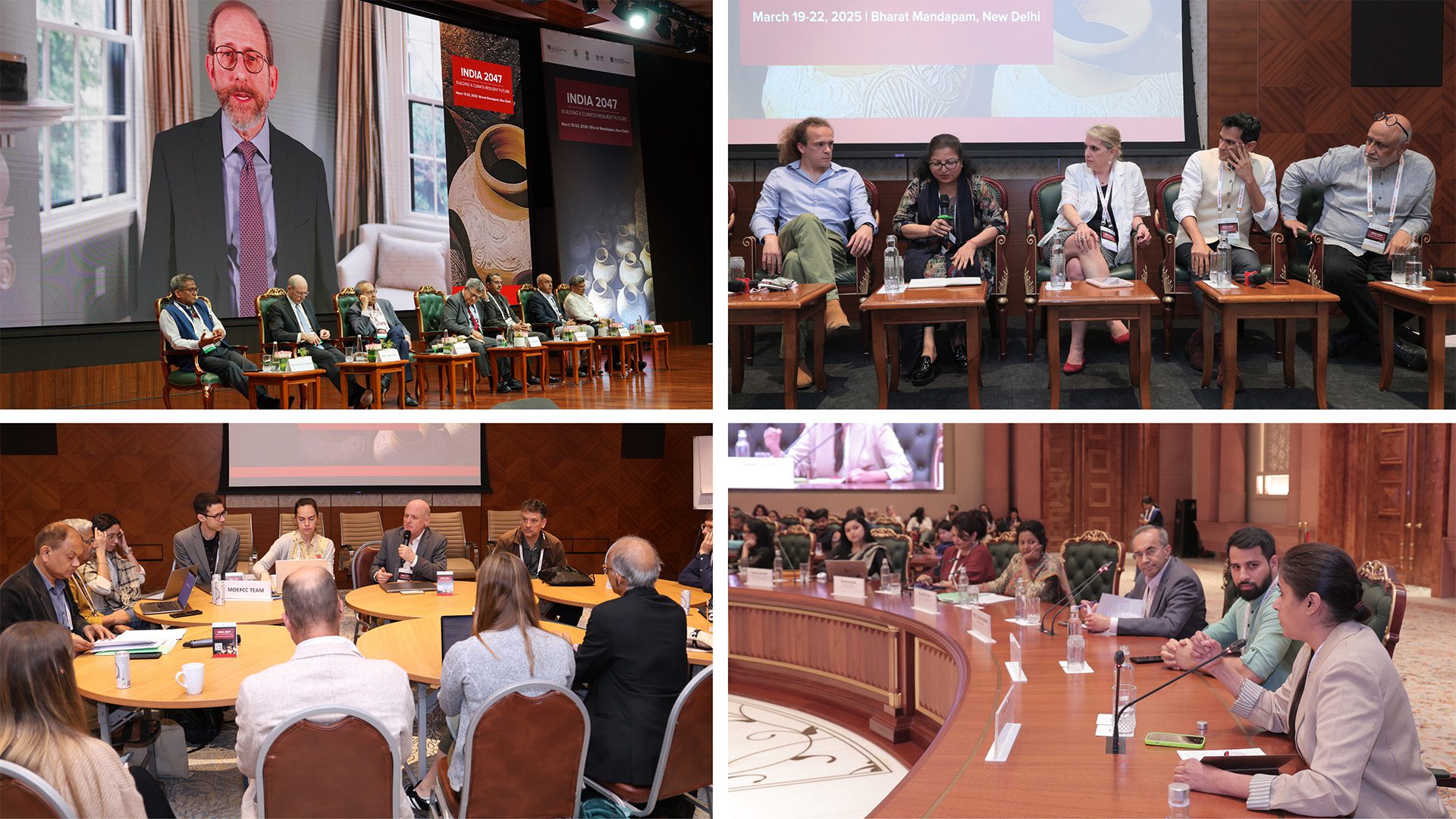
March 19–22, 2025 | India 2047: Building a Climate-Resilient Future
‘India 2047: Building a Climate-Resilient Future’ brought together leading experts in climate science, public health, medicine, labor, business, agriculture, and urban planning for a series of interdisciplinary dialogues on advancing climate resilience. It was co-hosted by The Lakshmi Mittal and Family South Asia Institute and the Salata Institute for Climate and Sustainability at Harvard University in collaboration with the Ministry of Environment, Forest and Climate Change, Government of India.
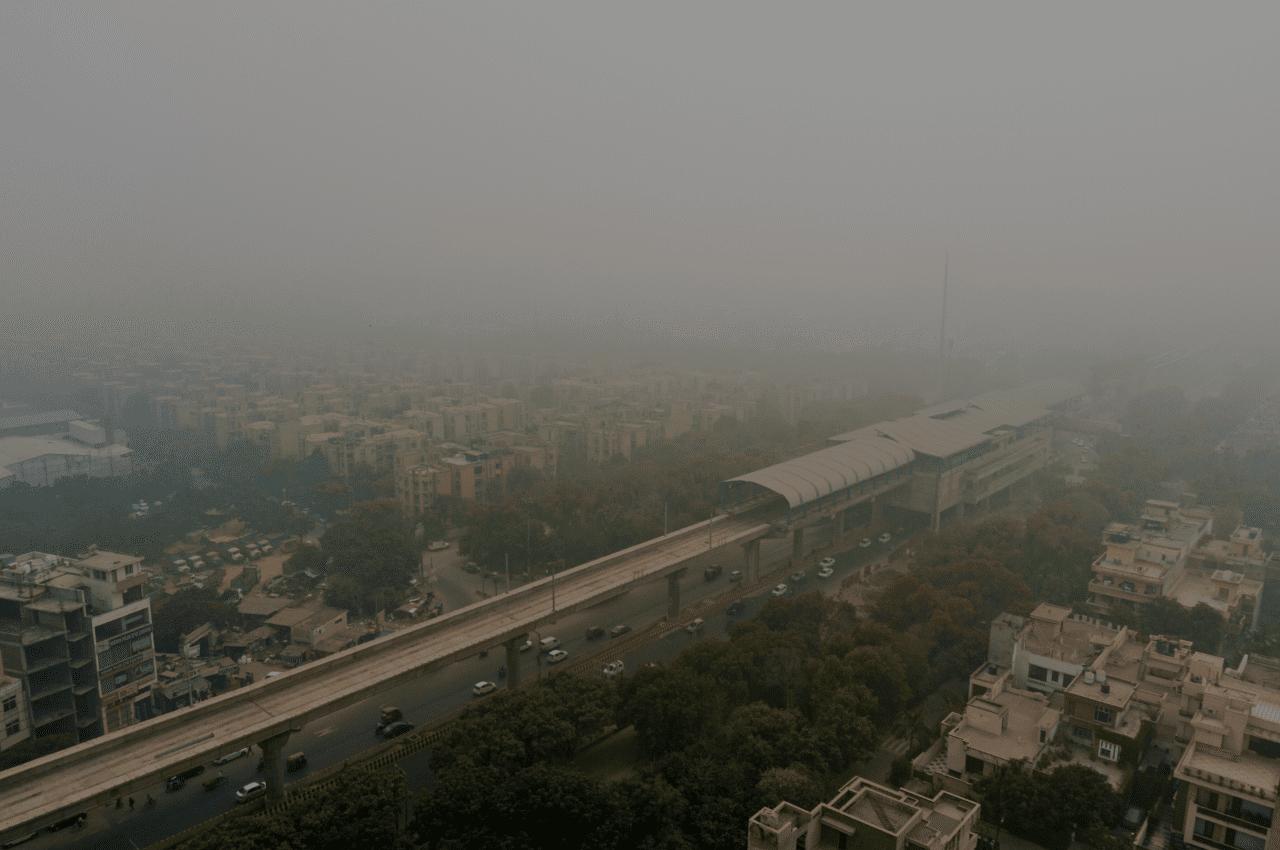
December 3, 2025 | Beyond the Haze: Interdisciplinary Perspectives on Air Pollution
This webinar aims to reframe air pollution not only as a scientific and regulatory concern but also as a question of historical trajectory, governance structures, and human experience. It will highlight how interdisciplinary insights—spanning medicine, public health policy, and environmental history—can deepen our understanding of air pollution and guide more inclusive and effective responses.
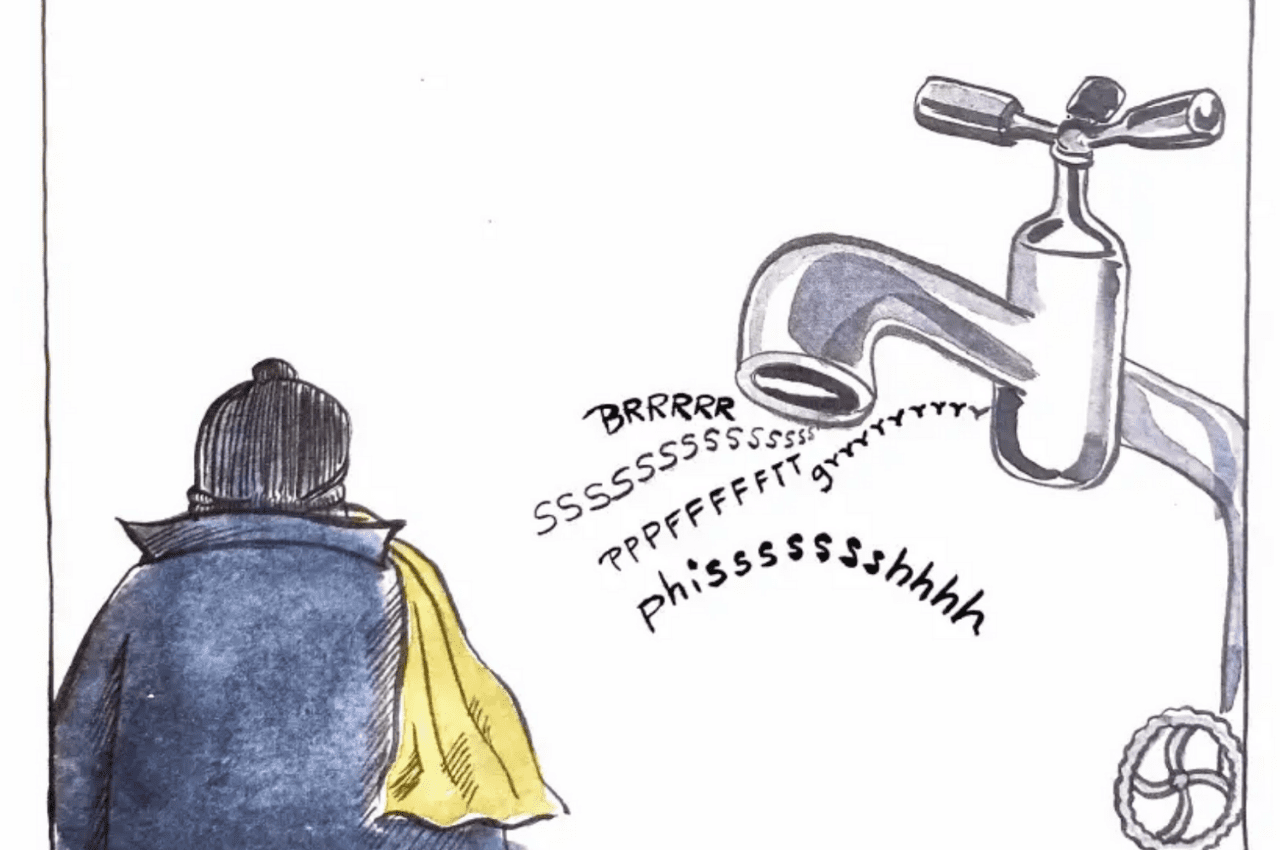
November 14, 2025 | Rethinking Water Crisis, Narrative Designs, and Strategies of Resilience
Nobonita Rakshit’s, Mittal Institute India Fellow 2025, seminar will explore multifaceted ontologies of anthropogenic water crisis through the lenses of environmental humanities. It plans to produce an interdisciplinary platform dialogic with evolving narrative modes and resilience strategies apropos of water crisis, and how the same can be imagined and instrumentalized using discourses from graphic novels, environmental economics, policy research, and sociology, advocating for an epistemological shift—from thinking about the water-scarce communities to thinking with them.
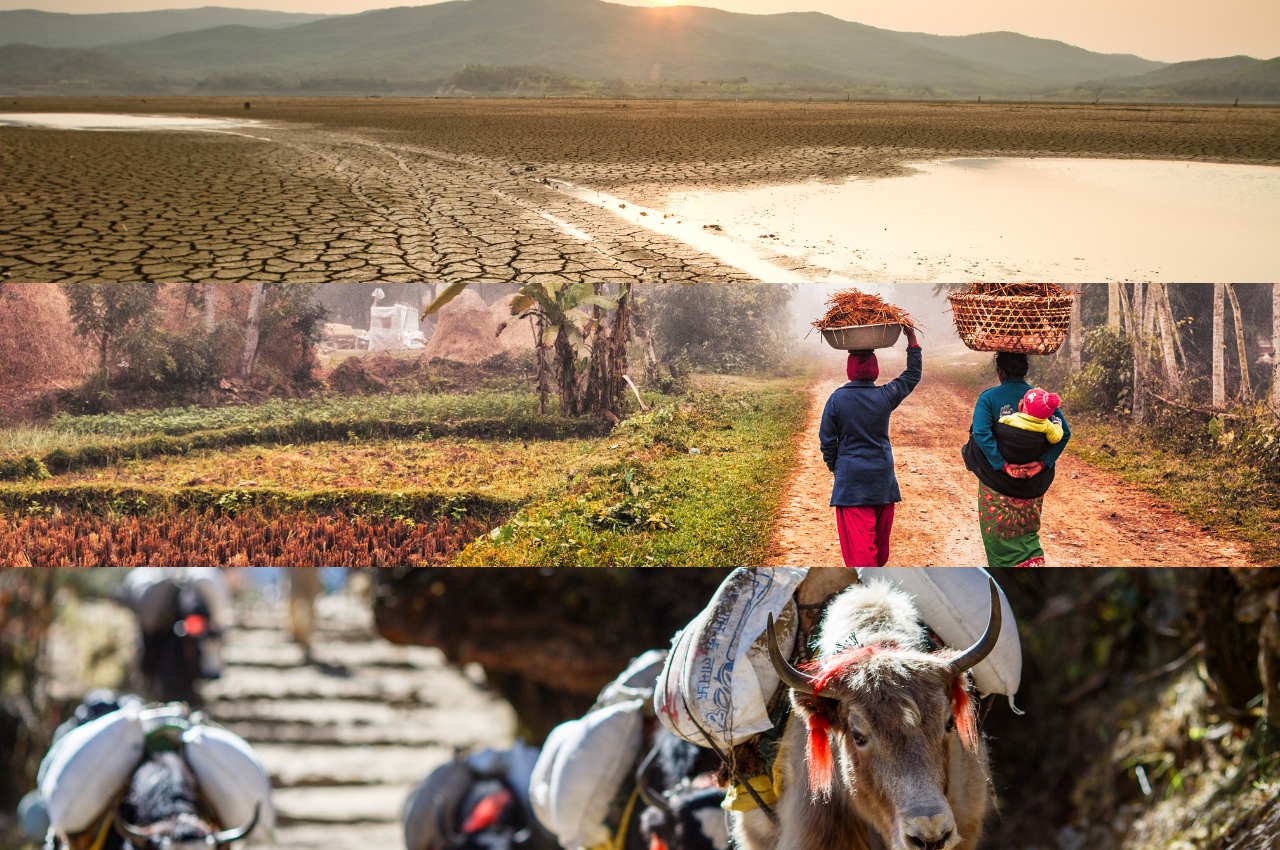
November 5, 2025 | Climate Change, Loss and Damage, and Habitability
Eugene Richardson discusses his Mittal Institute faculty climate grant project, “Climate Change, Loss and Damage, and Habitability,” with moderator Maxine Burkett. The project investigates climate change vulnerability in Nepal with a focus on recent extreme weather events such as the September 2024 floods in and around Kathmandu. The project explores how local communities perceive climate risks, the limitations of prescribed adaptation strategies, and the role of socio-historical and geopolitical factors in shaping vulnerabilities.
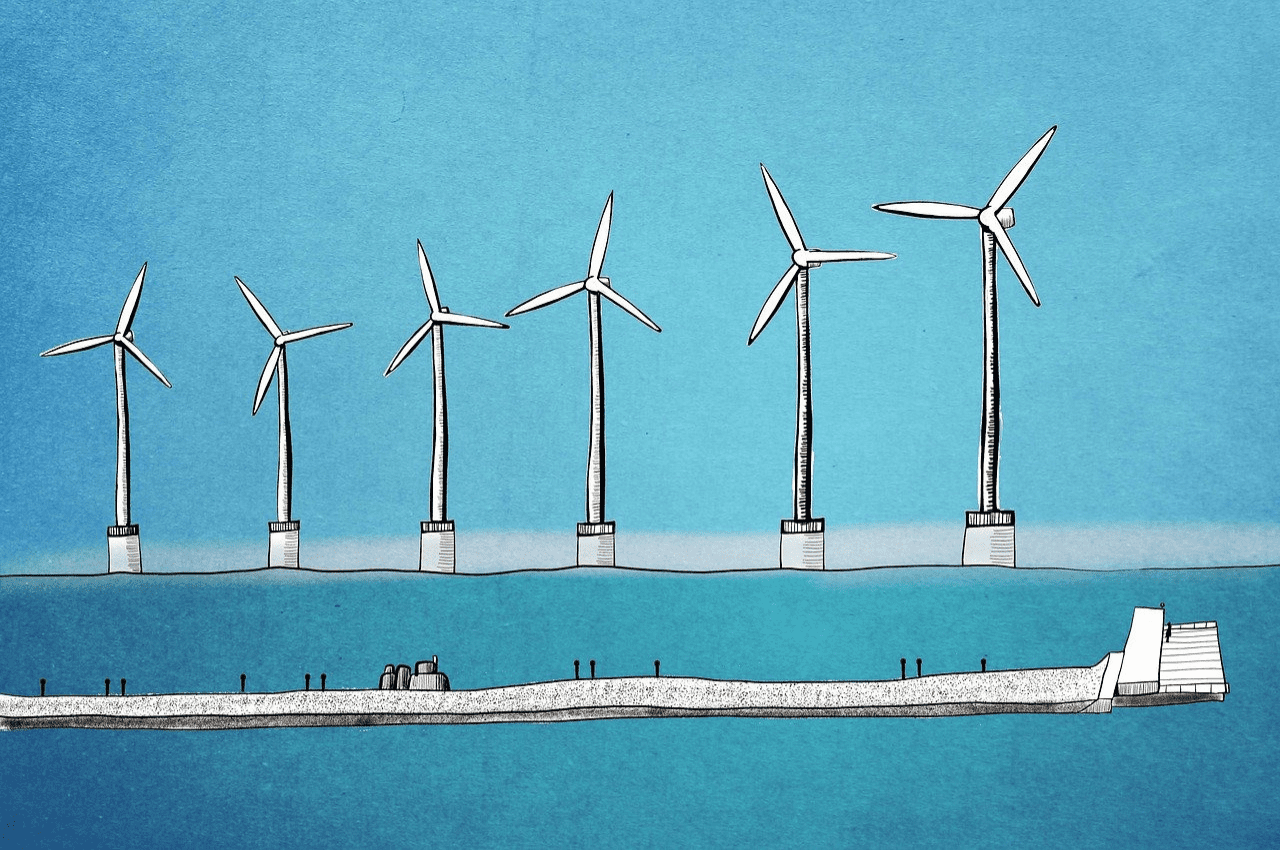
November 3, 2025 | Development While Decarbonizing: India’s Path to Net Zero
This webinar with Prof. Vikram Gandhi will explore the structural trade-offs and coordination challenges involved in aligning national climate goals with local development imperatives. It will examine how policy frameworks, financial innovation, and entrepreneurial ecosystems can work together to support transitions that are both equitable and executable. Drawing on cross-sector experience and past fieldwork, the conversation will surface actionable insights on how India—and by extension, other emerging economies—can structure a pragmatic yet ambitious path to net zero.
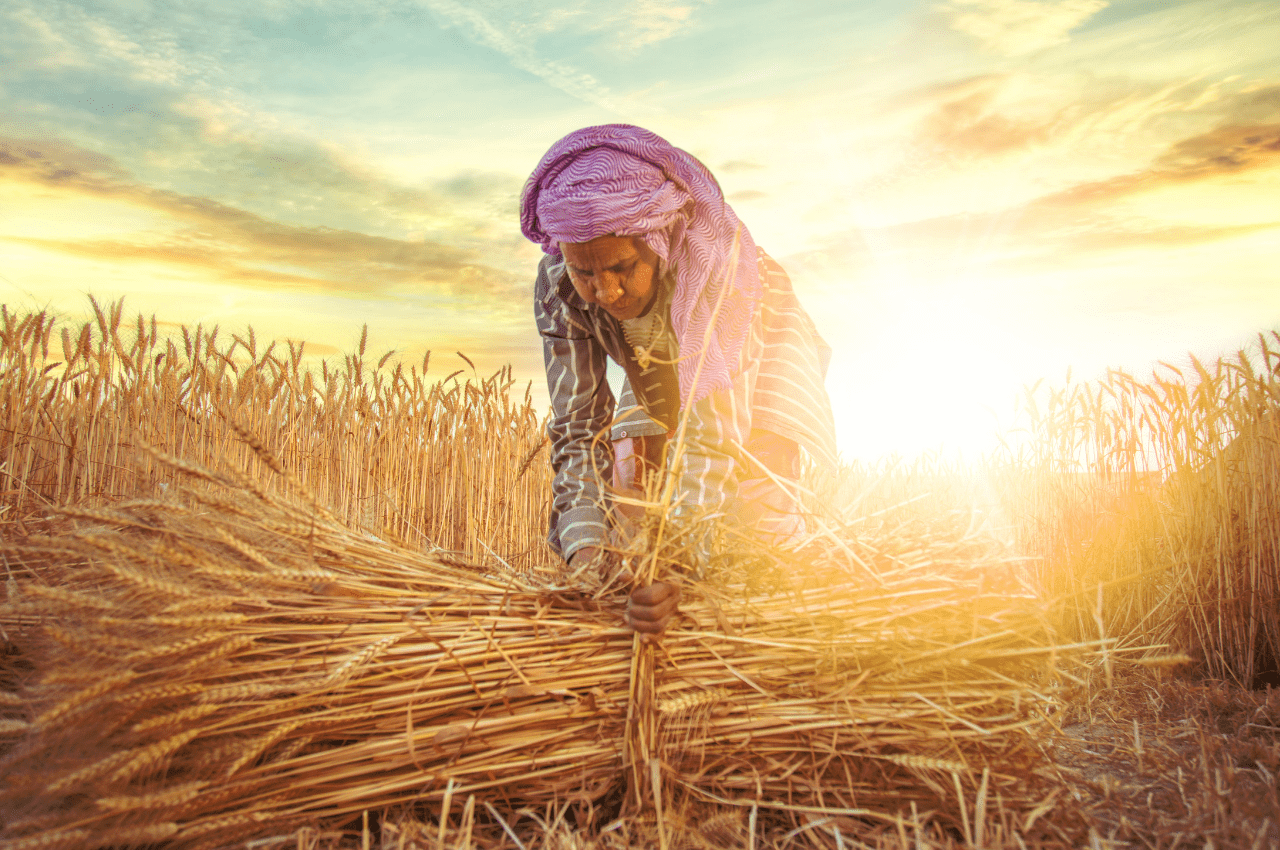
September 18, 2025 | Sun, Wind, and Biomass: India’s Path to a Sustainable Future
Prof. Michael B. McElroy and journalist Prem Shankar Jha discuss their new book, Sun, Wind, and Biomass: India’s Path to a Sustainable Future. The book examines the current state of the Indian economy, tracing its trajectory towards a fossil fuel-free energy future. It posits that harnessing sun, wind, and biomass can provide a sustainable economic alternative to polluting energy sources such as domestic coal and expensive oil and gas imports.
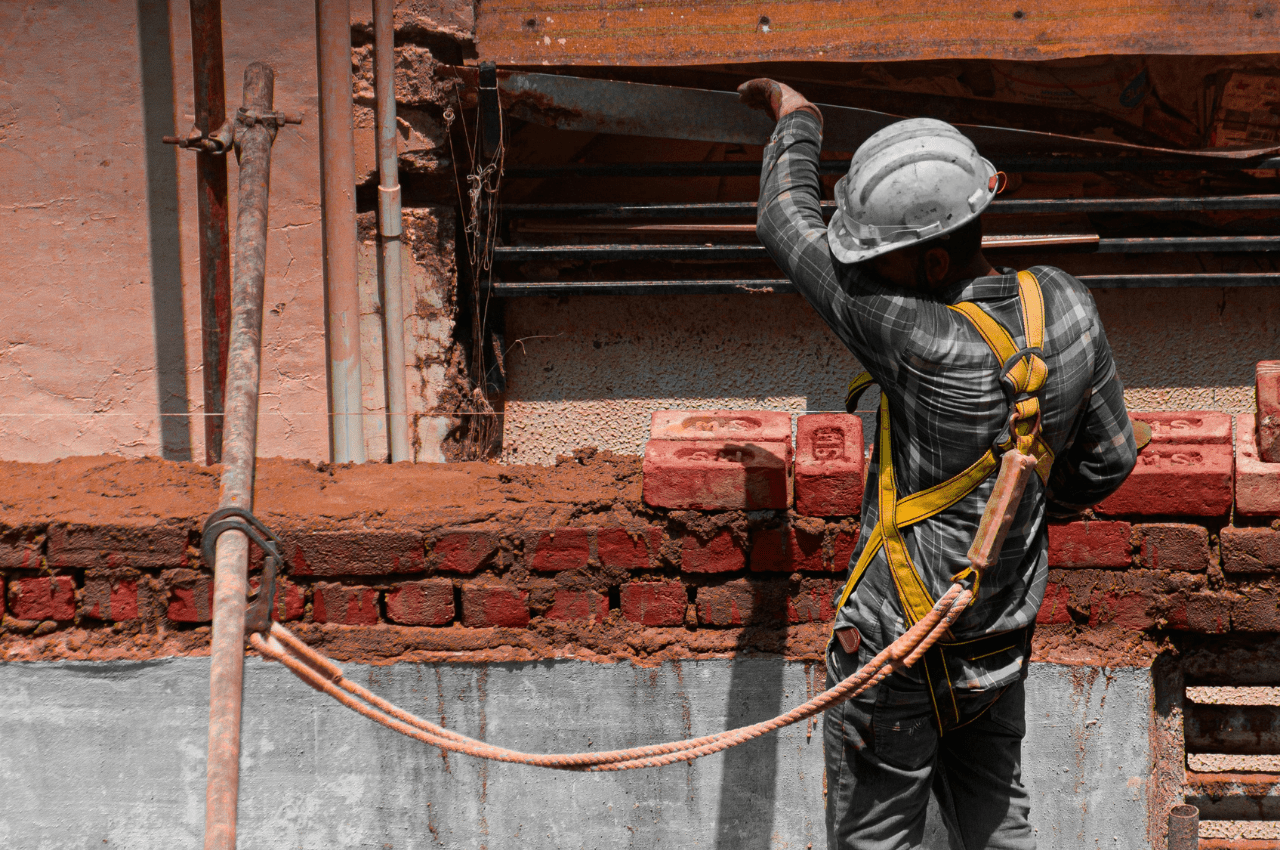
September 16, 2025 | Protecting Workers in Heat Action Plans
Across the globe, extreme temperatures and severe heatwaves are already impacting the health and safety of workers. States and cities from India to South Africa to the United States are developing Heat Action Plans to help their communities prepare for the worst impacts, including outdoor and indoor workers alike. This webinar explores how Ahmedabad, Boston, and Cape Town have developed and implemented Heat Action Plans, and why engaging with workers and their representatives is central to their success.
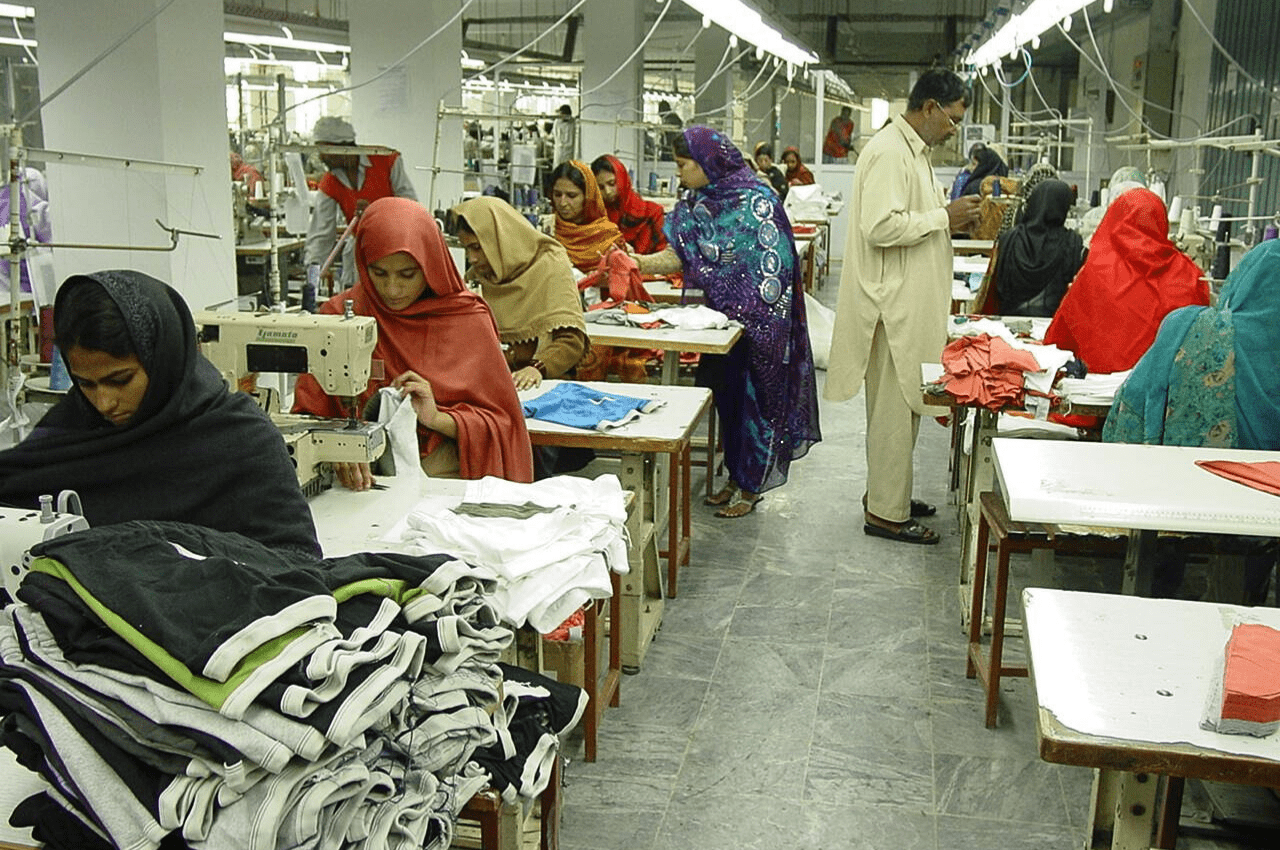
April 9, 2025 | Governance and Sustainability in Global Value Chains: A Case of Pakistan’s Garment Manufacturing Industry
Muhammad Ayaz, Mittal Institute Syed Babar Ali Fellow Spring 2025, presented his research on global value chains with a focus on Pakistan’s garment industry. This talk examines how governance structures can either enable or constrain sustainable practices in global value chains (GVCs), using Pakistan’s garment manufacturing industry as a case study.
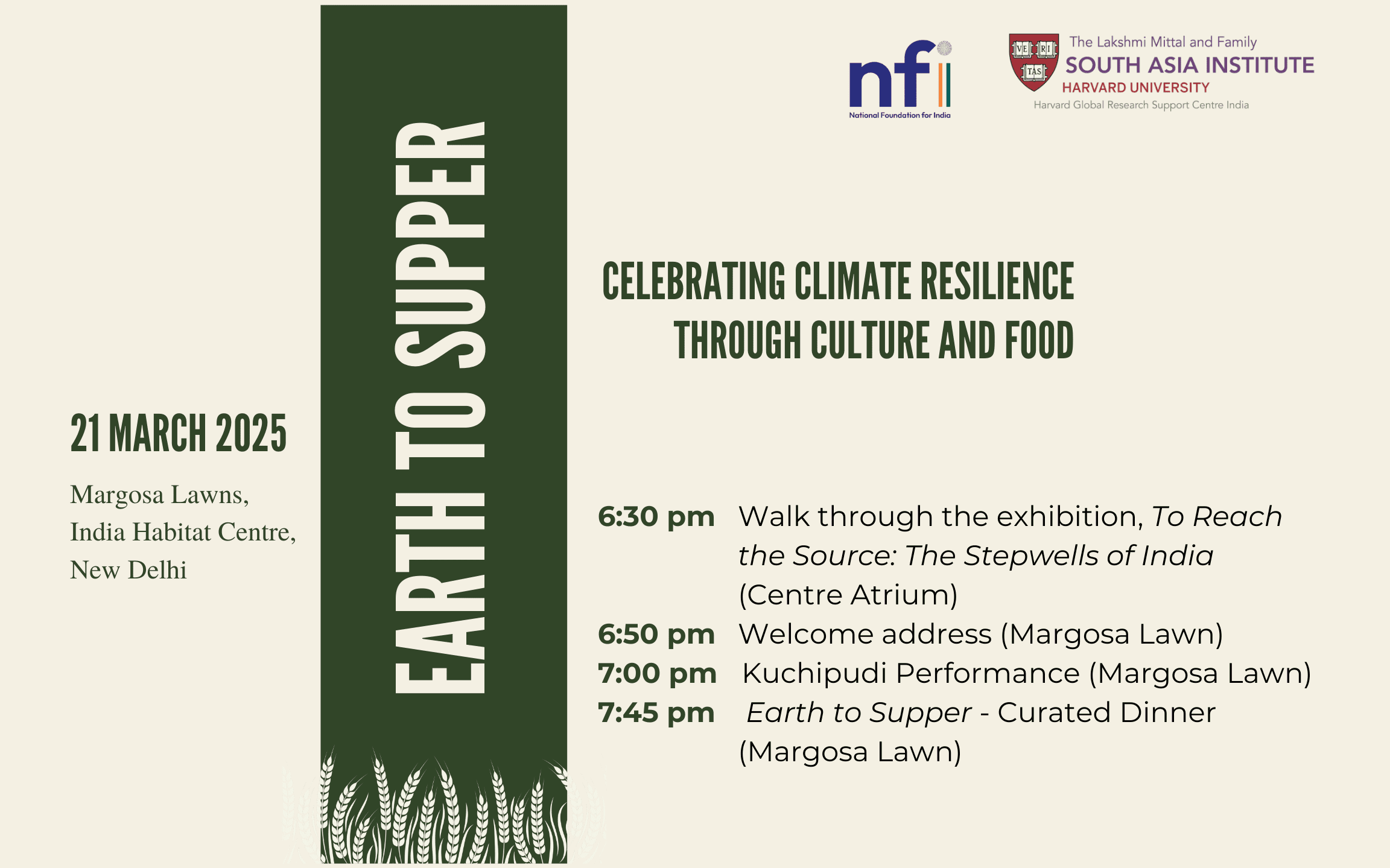
March 21, 2025 | Earth to Supper
The Mittal Institute, in collaboration with the National Foundation for India, invites you for Dinner and Cultural Evening exploring the deep connection between Indian heritage and climate resilience through art, architecture, and cuisine. This evening is being organized on the sidelines of the climate convening ‘India 2047.’

March 19-April 2, 2025 | To Reach the Source: The Stepwells of India by Claudio Cambon
An exhibition by photographer and environmental artist Claudio Cambon. Through his evocative photography of stepwells, Cambon invites us to reconsider our relationship with water, space, and the environment. His work highlights the importance of preserving both historical structures and natural resources, demonstrating how aesthetic appreciation can lead to deeper ecological awareness. By immersing viewers in the beauty and significance of stepwells, Cambon’s art fosters a sense of connection to the past and a renewed responsibility for the future.
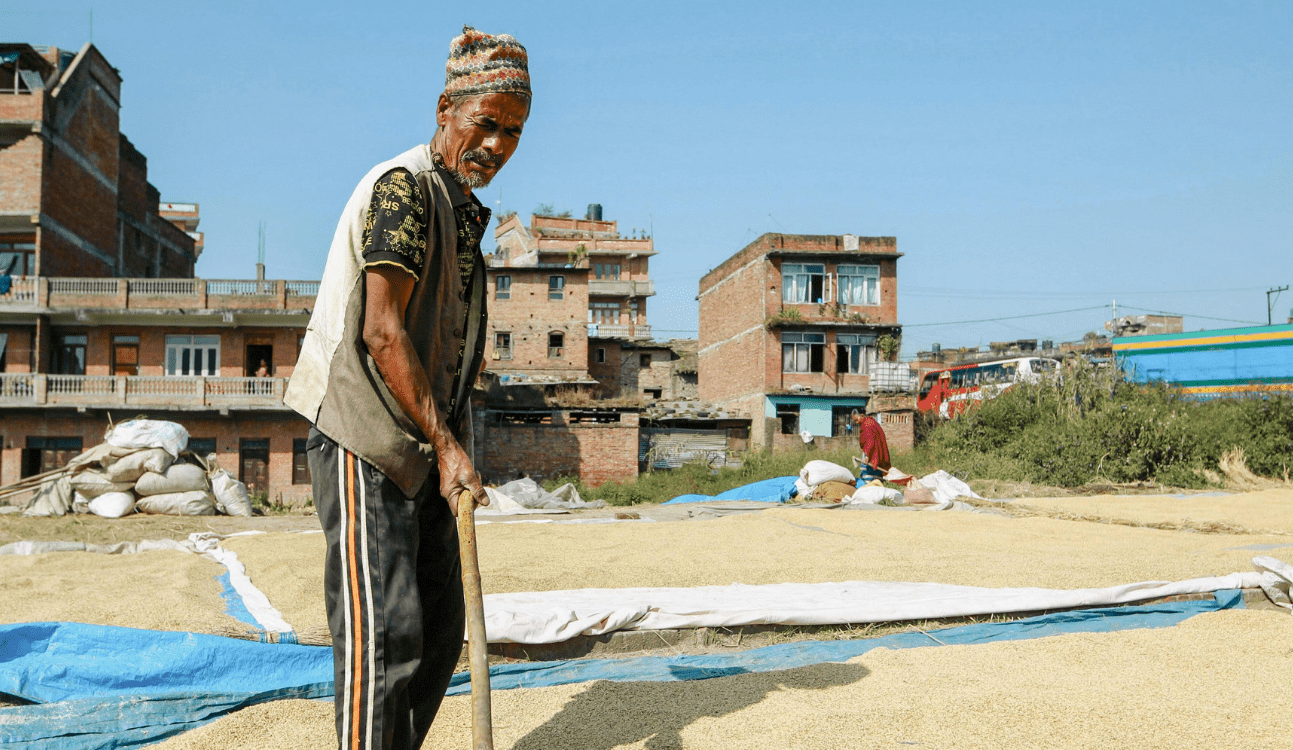
February 18, 2025 | Caste and Inequality in Heat Stress Exposure in India
Arpit Shah’s, Mittal Institute Raghunathan Fellow 2024–25, talk focuses on two channels by which caste can influence heat stress exposure in India. Firstly, that individuals from marginalized caste groups tend to live in locations that are exposed to higher temperatures and are farther from cooling amenities such as green spaces. Secondly, that individuals from marginalized caste groups spend more time working outdoors in stressful heat conditions. The findings imply that policies that tackle heat stress need to take structural inequalities into account.
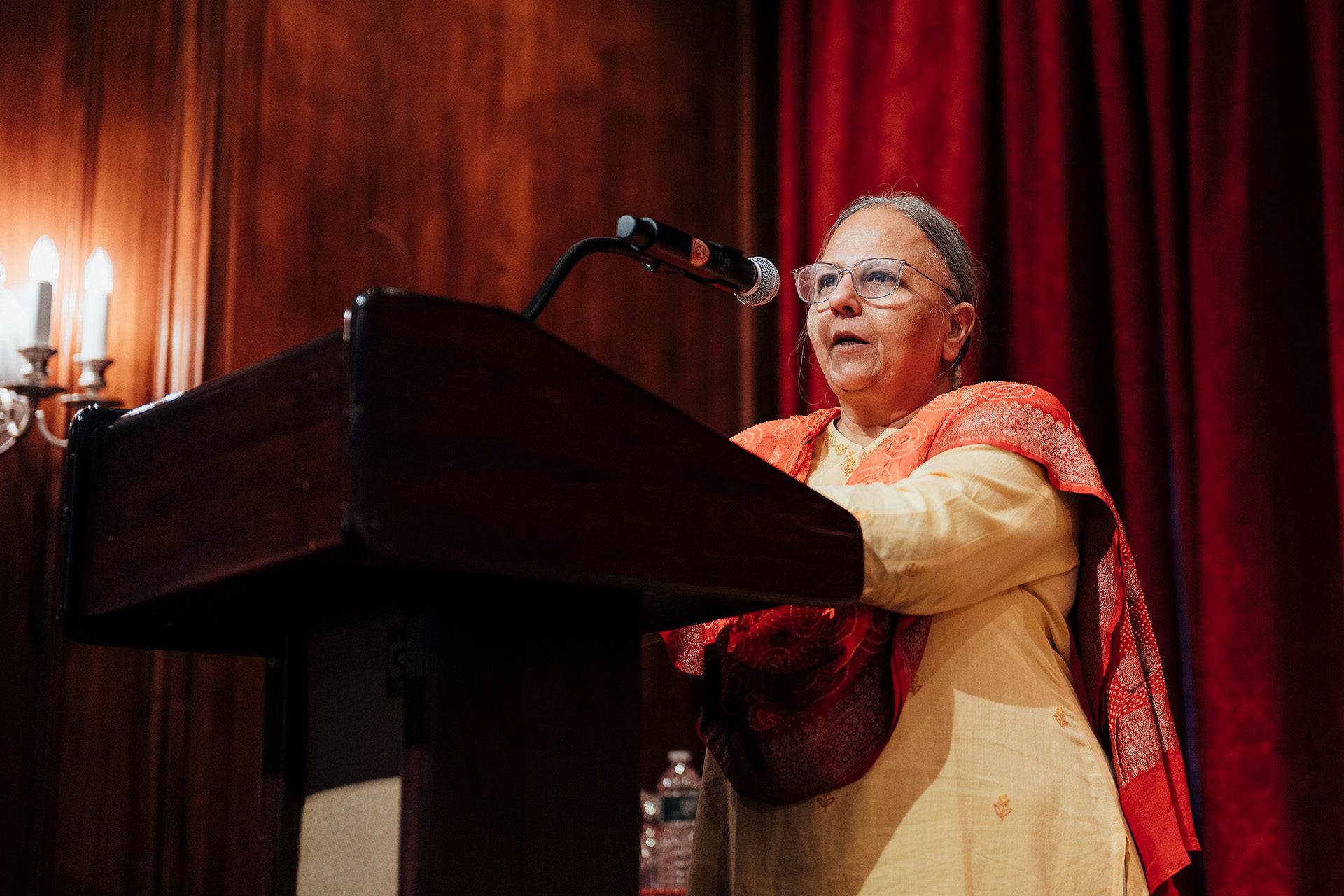
Sept 24, 2024 | Is It Already Too Hot to Work? – Harvard @ Climate Week NYC
The Salata Institute’s Climate Action Accelerator held a panel discussion at Climate Week NYC. Harvard faculty from medicine, public health, and law were in conversation with experts and leaders from the domestic and global labor movements to examine the impact of rising global temperatures on workers’ health, livelihoods, and productivity.
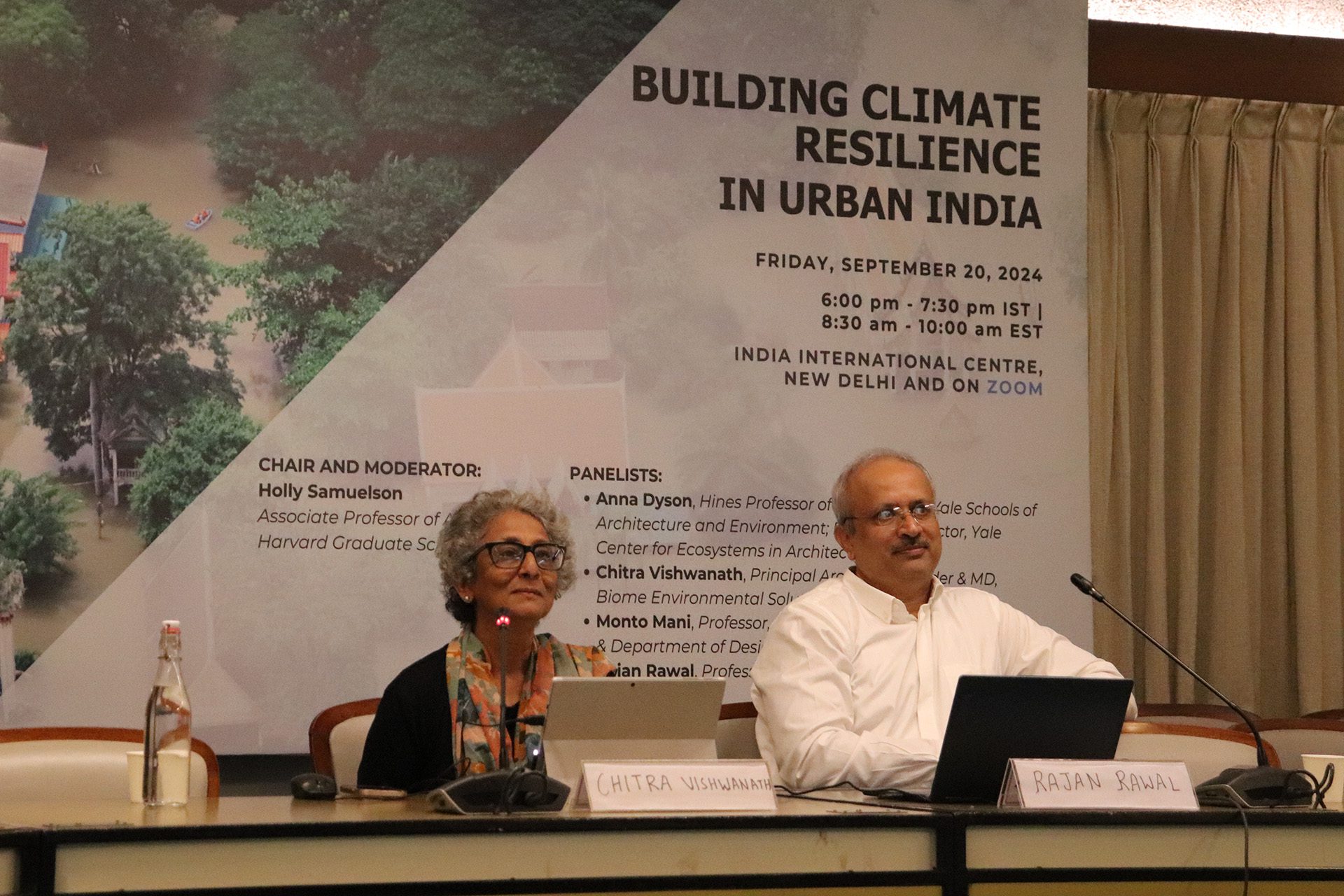
Sept 20, 2024 | Building Climate Resilience in Urban India
This event explored the climate change impacts of the built environment in urban landscapes, addressing gaps and opportunities for building climate resilience and sustainability and emphasizing inclusiveness in climate response.
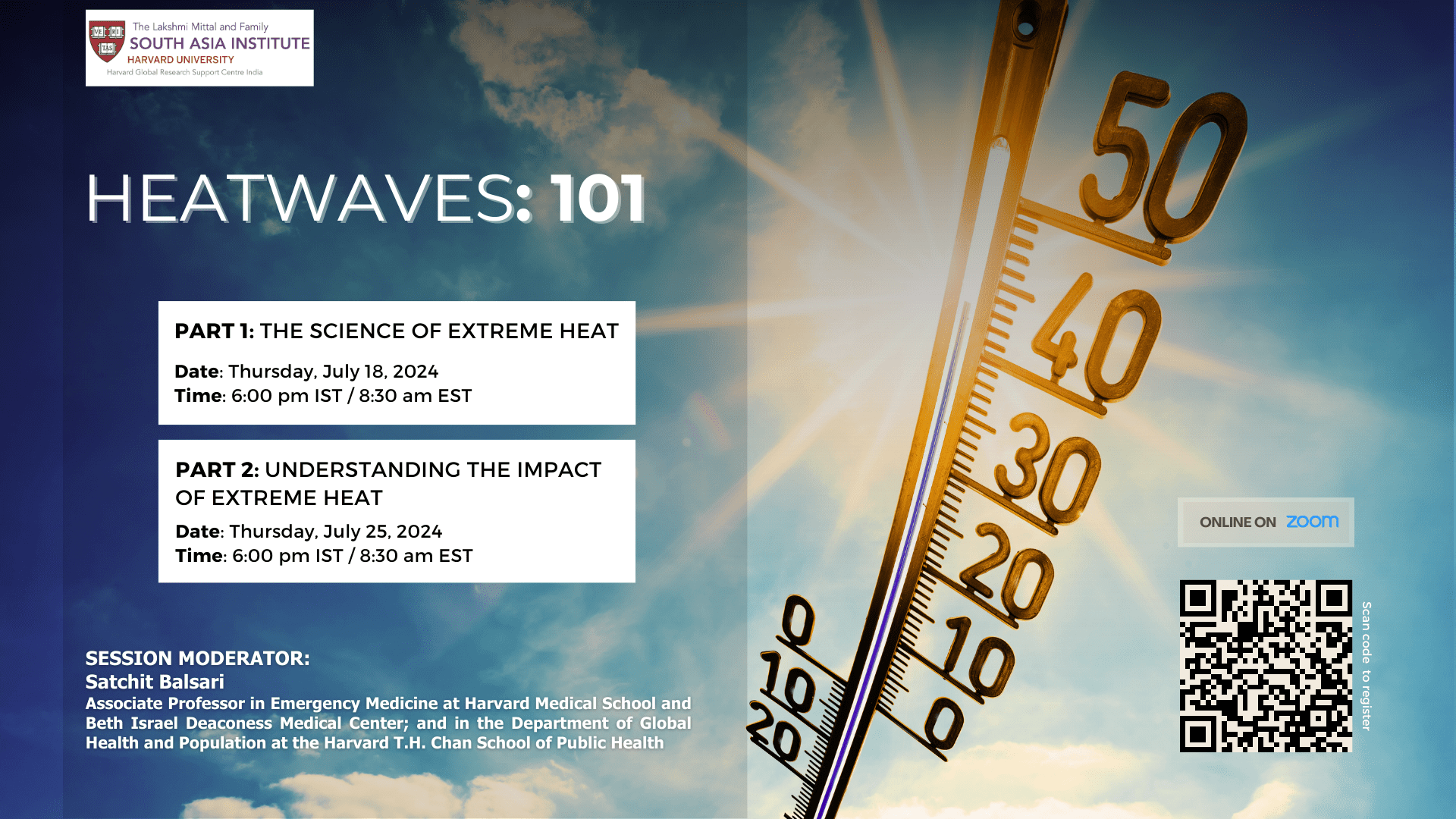
July 18 & 25, 2024 | Heatwaves 101
This two-part webinar delved into the science of extreme heat and understanding its impact.

May 3, 2024 | Annual Cambridge Symposium: Understanding Climate Change in South Asia
This session was part of the Mittal Institute’s Annual Cambridge Symposium 2024, which convened scholars, practitioners, and the public to explore “Science and Technology – The Future of South Asia.”
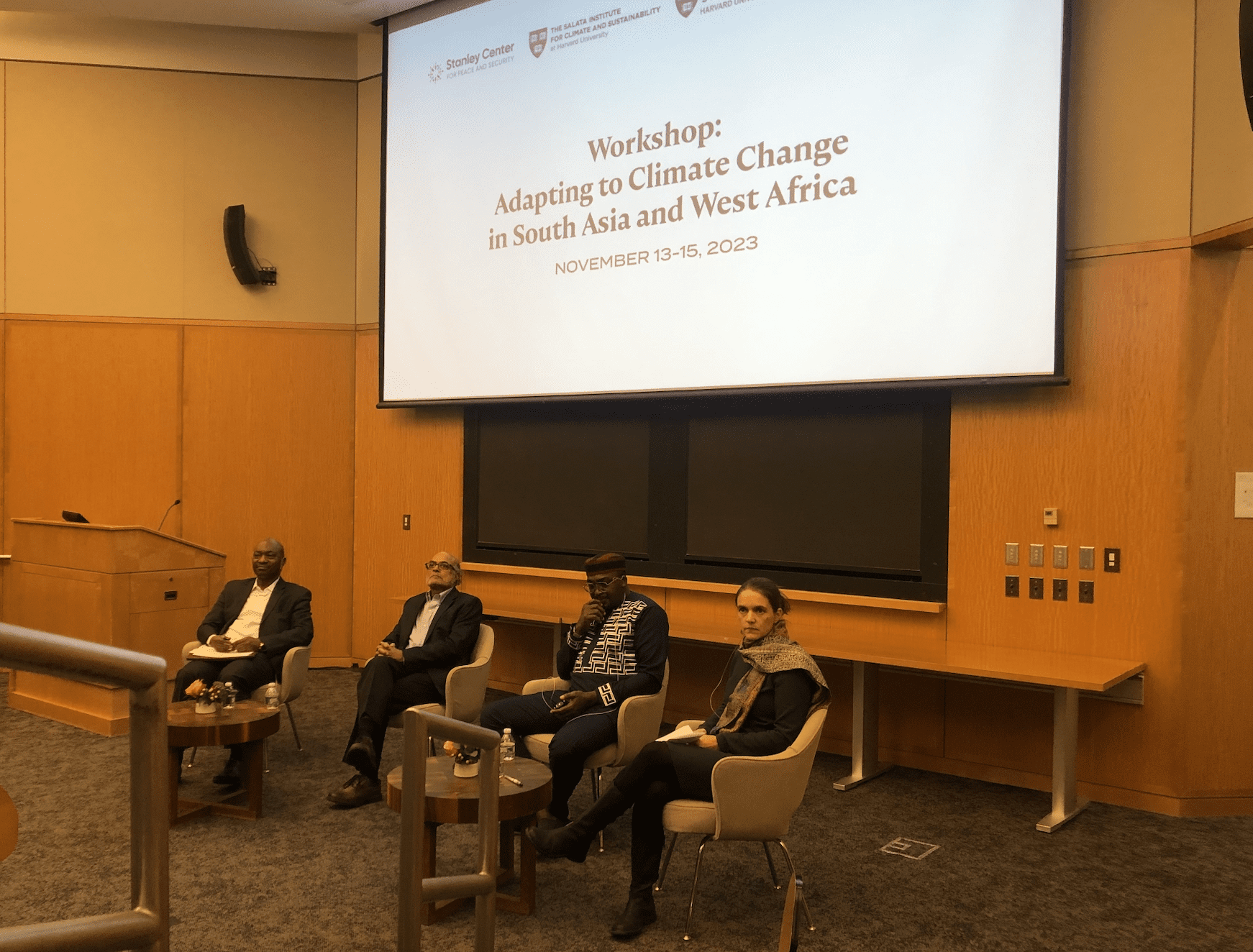
Nov 13-15, 2023 | Workshop: Adapting to Climate Change in South Asia and West Africa
This workshop built on research being conducted by the faculty research clusters on climate adaptation in West Africa and South Asia, through funding from the Salata Institute for Climate and Sustainability at Harvard University, to discuss the shared threats that climate change poses in their respective geographies.
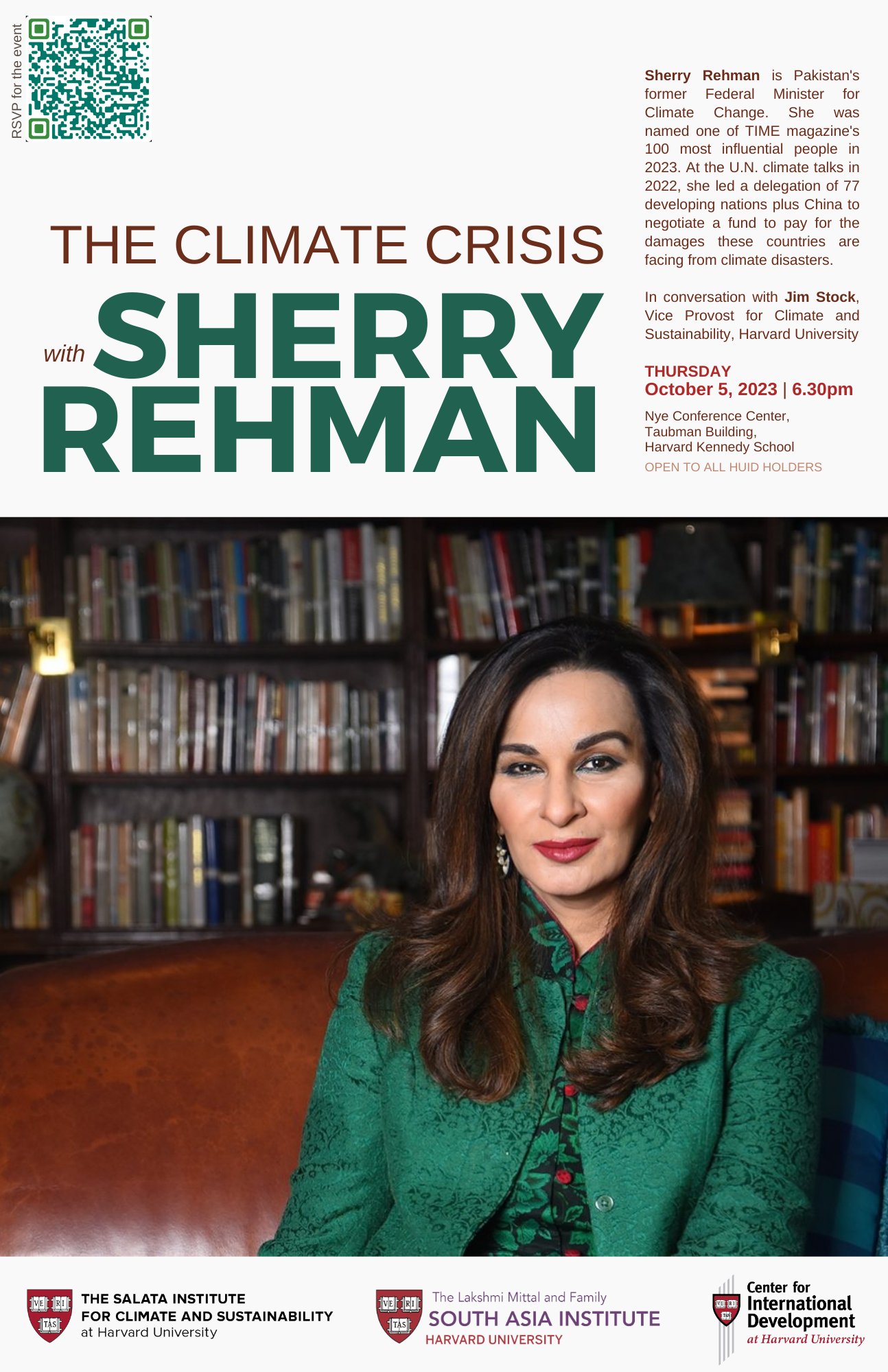
Oct 5, 2023 | The Climate Crisis with Senator Sherry Rehman, Former Federal Minister of Climate Change, Pakistan
Conversation with Senator Sherry Rehman, Chair of the Climate and Environment Caucus of the Senate of Pakistan, former Federal Minister of Climate Change, first woman Opposition Leader in Senate of Pakistan, Vice President of Pakistan Peoples Pakistan, moderated by James H. Stock, Vice Provost for Climate and Sustainability, Harvard University; Director of the Salata Institute for Climate and Sustainability, Harvard University; the Harold Hitchings Burbank Professor of Political Economy, Faculty of Arts and Sciences; and a member of the faculty at the Harvard Kennedy School.
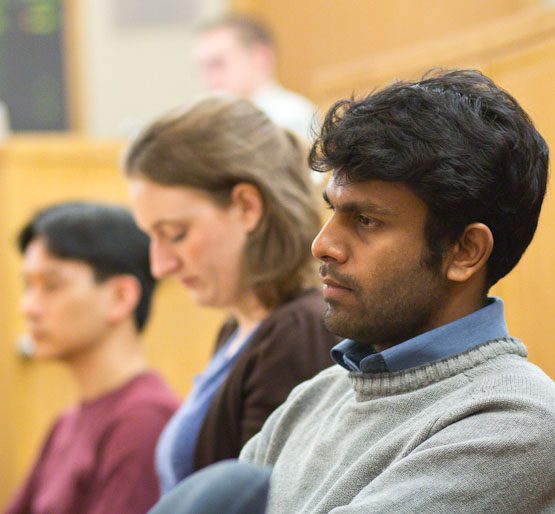
Sep 27, 2023 | Student Event: Launch of Mittal Institute Platform for Climate Change in South Asia
Our climate faculty and students discussed the newly launched research initiatives focused on climate data and adaptation in South Asia and how you can engage on these projects.
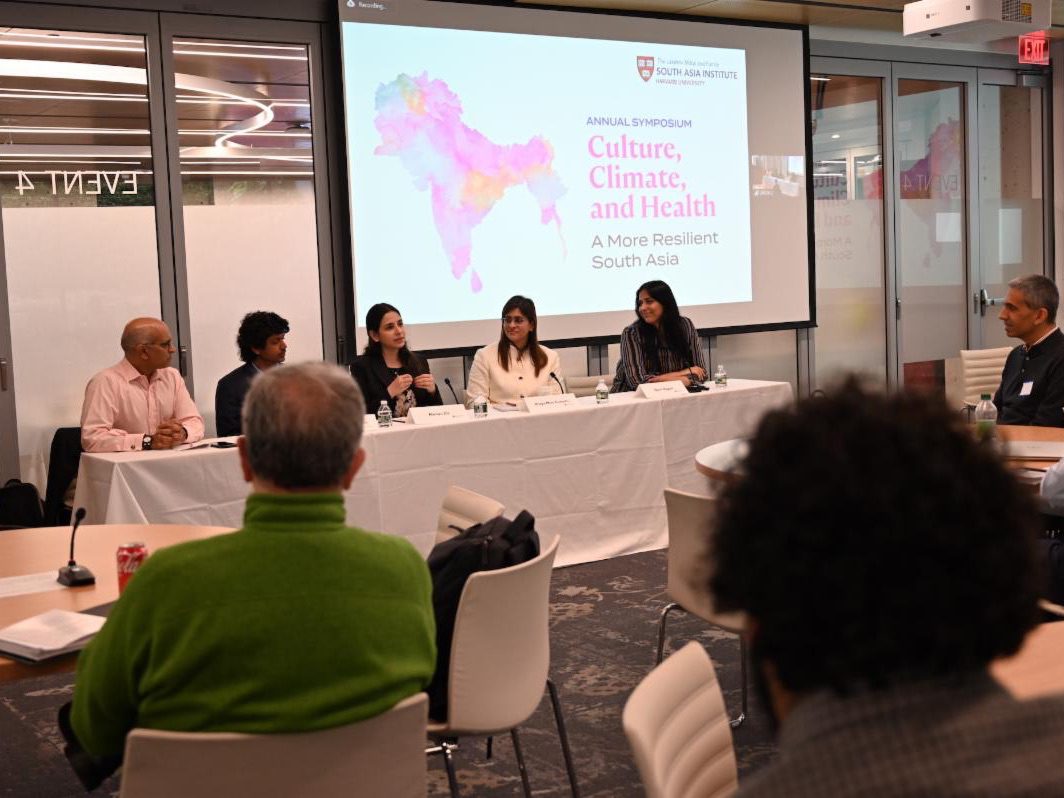
May 5, 2023 | Annual Cambridge Symposium Reflects on the Resiliency of South Asia
Scholars, practitioners and a packed audience gathered for the Mittal Institute’s flagship spring event, the Annual Cambridge Symposium, to present work and discuss ideas central to South Asia. This year’s conference focused on the theme of “resiliency.”
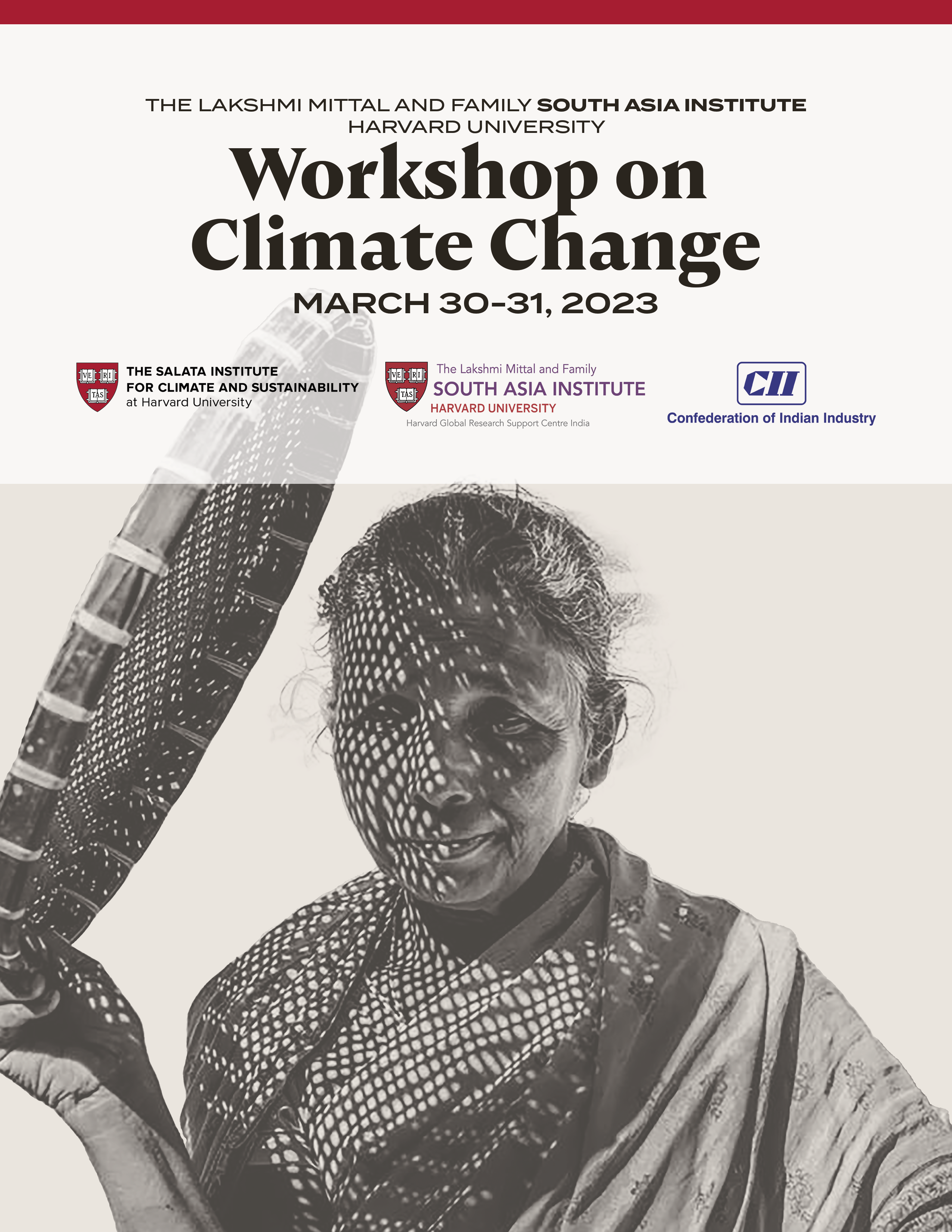
March 30-31, 2023 | Mittal Institute Launches Climate Change Platform Focused on South Asia at New Delhi Event
The Mittal Institute hosted an inaugural climate change workshop in New Delhi. The sessions convened an interdisciplinary group of experts, policymakers and academics to set collective research and strategic priorities.
